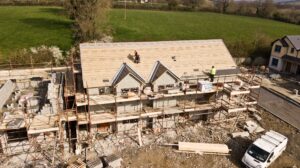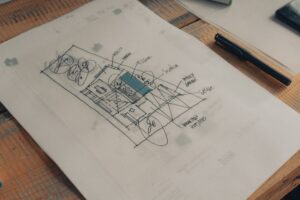
What Are the Main Components of the Preconstruction Process?
Among the most important stages of the construction process include the design stage and the construction stage, the latter of which is when the structure is finally built. However, it can be argued that the pre-construction process is even more important to the success of construction projects than the aforementioned stages. This stage of the construction process covers all of the steps that you need to take before construction can officially begin. You are technically in the pre-construction phase from the time the project starts to the moment construction begins.
The many tasks that must be completed during pre-construction include everything from creating a construction timeline to finalizing the structure’s design. During the pre-construction stage, you’ll also be tasked with forming a team of designers, architects, contractors, and subcontractors who can complete your project on time and under budget. Before you hire any team members, make sure that you conduct extensive interviews with each of the professionals you want to hire. During these interviews, you should inquire about licensing, experience, and any other subjects you would like to know about.
Pre-construction is highly important because it allows you to create the foundation for the remainder of the construction project. With this base of support, the construction process can be completed more efficiently and without as many mistakes. Keep in mind that even the smallest of mistakes during construction can delay the process for days or even weeks.
If you’re looking to begin the pre-construction process, keep in mind that several professionals will be involved in this process, which includes the entirety of your design team as well as your construction partner. The design team can include architects, engineers, owners, contractors, and consultants. This article takes a look at some of the main components that are necessary for the pre-construction process to be successful.
Project Details
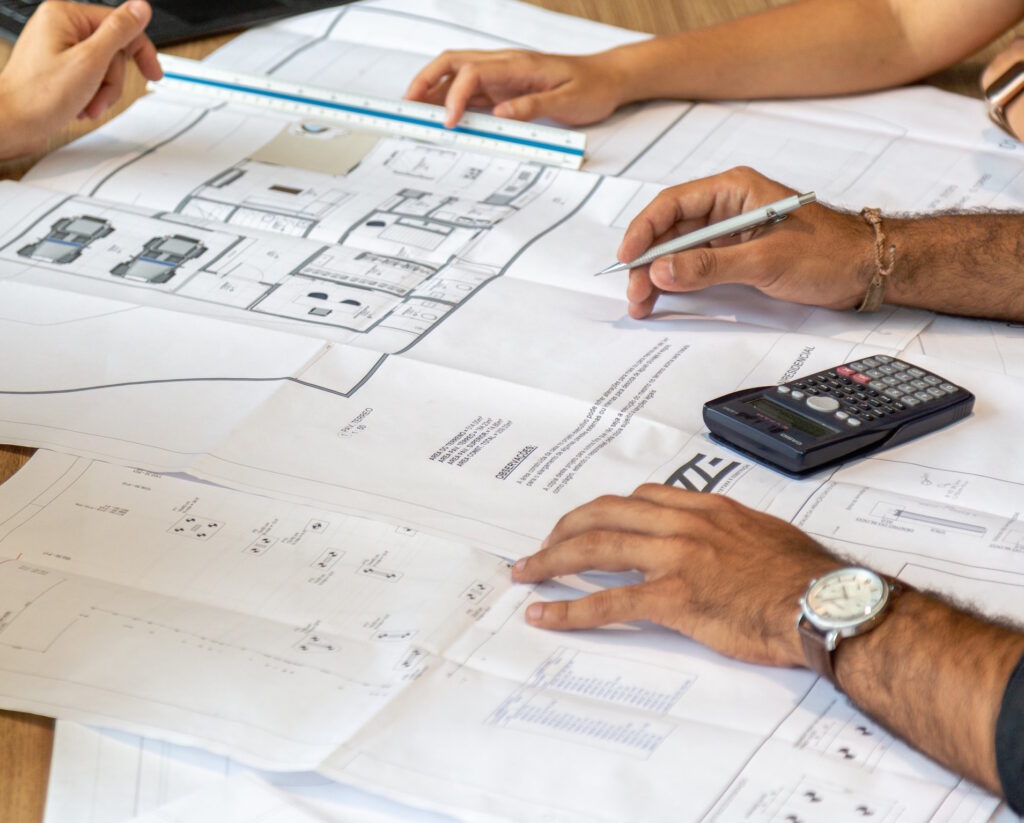
This aspect of the pre-construction process centers around identifying all of the pertinent project details, which include the structure’s layout, size, materials, style, and quality. When the design has been finalized, you’ll be able to create a plan for how each step of construction will proceed. A more realistic construction timeline can also be made at this point in time.
Project Budget
Before you can settle on the exact building materials you’re going to use throughout the construction process, it’s essential that you create a budget. This budget will serve as a guide for every future decision you make while the construction process is ongoing. Without a project budget in hand, the rest of your team won’t be on the same page, which can create costly issues and time delays.
In order to make an informed budget, it’s important that your construction and design teams work together to provide you with accurate cost and design information. Keep in mind that this information should include alternatives that can be used if your primary options aren’t available. You should have as much information as possible if you want your project budget to be an accurate one.
Project Scope
Defining the scope of your project is an integral component to the pre-construction process that can help you understand how many materials need to be procured. If you don’t nail down the project scope in this stage of the construction process, you could end up purchasing far more materials than you need, which only serves to cost you an ample sum of money.
Identify what you’re wanting to accomplish with the building and how much space you’ll need to meet your goals. Once you’ve determined the scope of your construction project, it should be easier for you to envision how the project can be successfully completed.
Project Materials
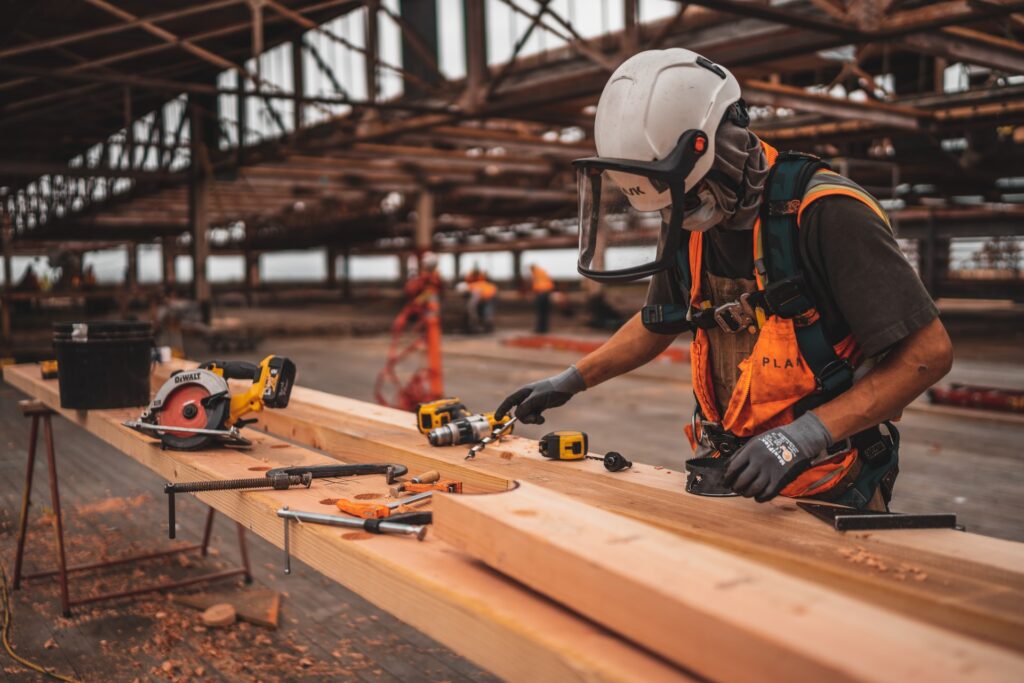
Material procurement is an essential aspect of construction that could substantially worsen your project timeline or budget if not planned out properly. It’s not possible to obtain all the materials that are needed for the construction process in a short period of time, which is why your general contractor should work on material procurement throughout the entirety of the pre-construction process.
This individual should identify the equipment and materials that will be necessary for the job. They should then order these items early on to make sure that they arrive on time. With proper planning, acquiring the right materials for the project should be simple and straightforward.
Project Team
While the pre-construction phase is ongoing, you should be hard at work on building your project team. For instance, the construction company you hire will need to take a sizable role in the design phase of the construction process, which means that you should hire them as soon as possible.
Once you’ve selected the primary construction company that will assist you in the process, it’s important that they start preparing bid packages that can be handled by subcontractors. The construction company you hire should assess all of the subcontractors who make bids to determine which ones have the expertise and training necessary to manage specific construction tasks.
Project Communication
The success of the pre-construction depends largely on how effectively each team member is able to communicate with one another. If you want to reduce the number of mistakes that are made during the construction process, it’s important that every member of your team is on the same page. To that end, it’s highly recommended that you develop a comprehensive communication plan during the pre-construction process.
Make sure that the communication plan is developed with each team member in mind. If your general contractor has a preferred method of communication, you might want to develop your plan around this method. Any construction project is complicated and involves many moving parts. As such, team members will invariably have questions that they need to ask of other team members. A good communication plan anticipates this need and facilitates fantastic communication.
Project Permits and Inspection
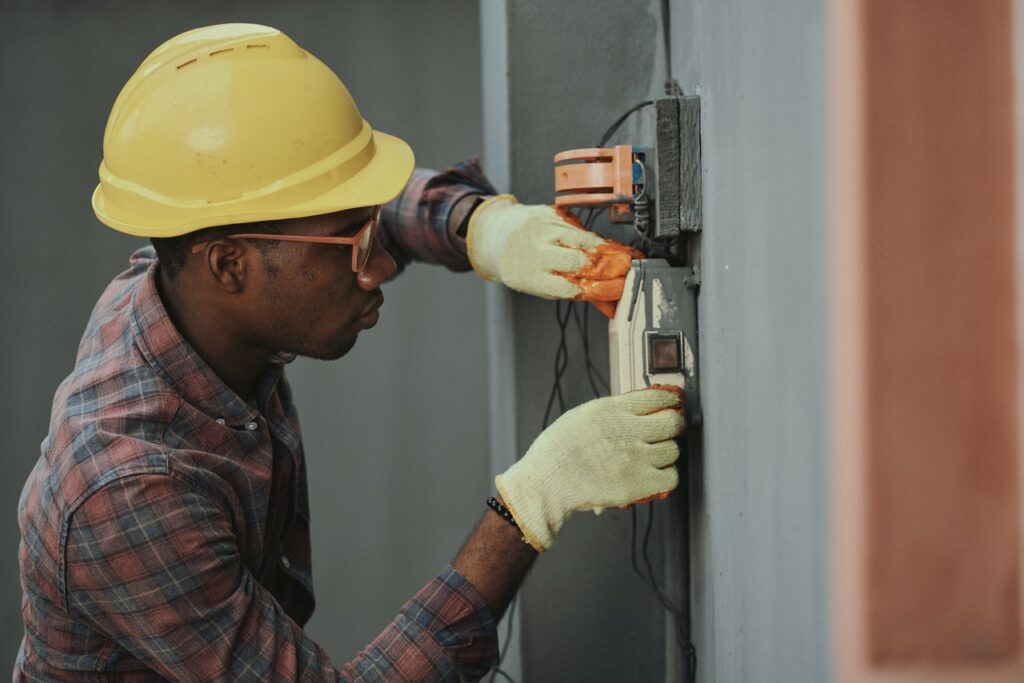
Another important aspect of any construction project involves the permits and inspections that must be obtained before and during construction. For instance, you’ll be tasked with applying for and obtaining a building permit from the Los Angeles Department of Building and Safety if you want to be able to begin construction. Without a building permit, anything you build can be torn down in the event that the city finds out, which will cause you to lose a substantial sum of money and likely delay your project for a significant period of time.
Along with the standard building permit, there are a range of additional permits that you may need to select to ensure that the finishing building meets all of the city’s codes and regulations. Keep in mind that your building permit application must be accompanied by comprehensive building plans that show the LADBS exactly what the structure will look like and how it will be designed.
The building plans you provide will also serve as a reference for city inspectors who look at your building at several points throughout the construction process. The main inspection that occurs before construction begins is a site inspection, which allows the inspector to determine if the site properly accommodates the structure you want to build.
If you pass this inspection, you should be able to construct your building without issue. This is an essential component of the pre-construction process because of how it can affect construction. If you’re unable to get the right permit or find that you don’t pass the necessary inspections, it’s possible that the entire construction project would need to be reevaluated.
Concluding Thoughts
Depending on the scope of your construction project, the process can take anywhere from six months to two years to be completed. Because of the duration and scale of any construction project, it’s essential that you take some time to plan out every facet of the project. While this won’t necessarily guarantee the success of your construction project, it should minimize mistakes during the construction phase of your project.
Pre-construction involves everything you need to do before the contractors you hire start building the foundation and forming the structure. At this stage of the project, you’ll be tasked with creating an estimated construction timeline, applying for the necessary building permits, hiring contractors and subcontractors, making a budget, and getting your team together.
The first stages of any pre-construction process involve identifying the project scope and setting a budget. Once you understand how large the building will be and what the scope of the project entails, it will become easier to set your budget and determine how much materials will cost. The general contractor you hire can handle filling out the necessary building permit applications so that you can focus on the remainder of the pre-construction process.
When all of these components are put together, you can be confident that your construction project has the foundation it requires for success to occur. If you pay hardly any attention to the pre-construction process, there’s a good chance that the project will fail or that you will encounter considerable hurdles along the way.

Jason Somers, President & Founder of Crest Real Estate
With over 15 years of professional experience in the Los Angeles luxury real estate market, Jason Somers has the background, judgement and track record to provide an unparalleled level of real estate services. His widespread knowledge helps clients identify and acquire income producing properties and value-ad development opportunities.
Learn more about Jason Somers or contact us.

